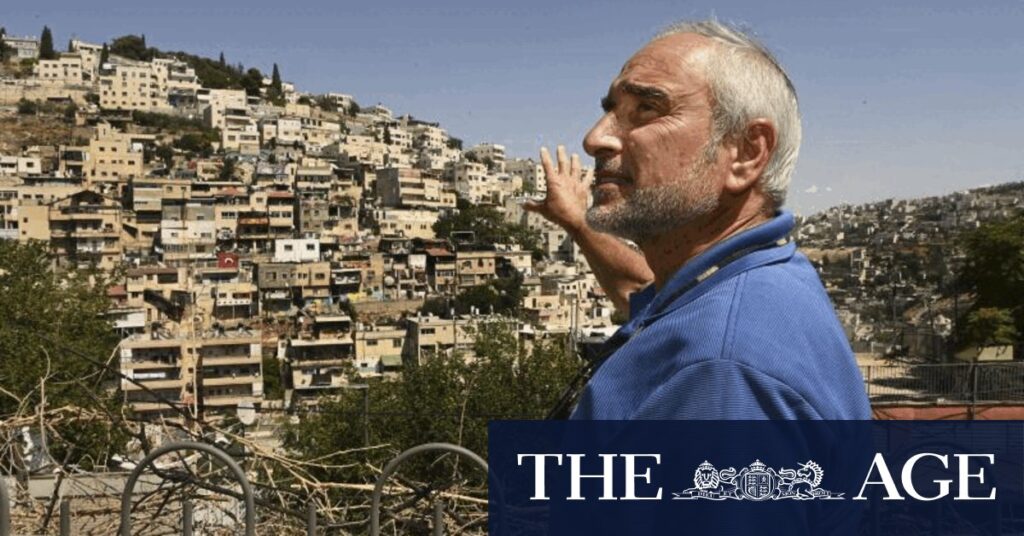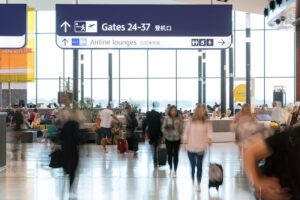
In the heart of East Jerusalem’s Silwan district, Najah al-Rajabi, a 69-year-old widow, awaits an eviction notice that could arrive any day. For over 55 years, she has called this place home, a modest apartment adorned with vibrant murals painted by pro-Palestinian artists. Yet, the Israeli Supreme Court has rejected her family’s final appeal, and soon, a Jewish family is set to move in, leveraging a law that allows Jews to reclaim property owned before 1948.
The looming eviction threatens not just al-Rajabi but 18 family members, including her 31-year-old grandson Awad, who is in a coma and relies on a ventilator. “Even a few minutes without electricity could put his life at risk,” she says, her voice heavy with worry. Her granddaughter, who uses a wheelchair, also faces homelessness.
Historical Context and Legal Battles
The neighborhood of Batan al-Hawa, where al-Rajabi resides, is home to around 80 Palestinian families facing eviction. This densely populated area is a flashpoint, situated near revered religious sites and embroiled in a complex legal and political struggle. The Israeli legal system views many Palestinian residents as “illegal squatters,” citing historical claims by a Yemenite Jewish trust from the 1800s.
Israel’s annexation of East Jerusalem in 1967 is not recognized internationally, with most countries, including Australia, viewing it as occupied territory. The Israeli Supreme Court’s decisions often favor Jewish claims, intensifying tensions and sparking international criticism.
The Role of Ateret Cohanim
At the forefront of these property disputes is Ateret Cohanim, an organization dedicated to increasing Jewish presence in Jerusalem. Led by Australian-Israeli Daniel Luria, the group facilitates the transfer of homes from Palestinians to Israelis. Luria describes their mission as “ideological real estate with political ramifications,” framing the property battle in militaristic terms.
“The war with Iran may be over, but the war for Jerusalem goes on,” Luria asserts.
Critics, including Amnesty International, accuse Ateret Cohanim of using dubious methods to acquire properties, such as bribery and legal loopholes. In contrast, Luria claims their efforts involve voluntary sales, although Palestinian laws make such transactions illegal, punishable by death.
Human Impact and International Reactions
The human cost of these evictions is profound. Asmahan Shweiki, another elderly resident, faces eviction from a home her family purchased in 1988. “We are living in a scary moment, I have no other place to go,” she laments. Her story echoes throughout Silwan, where memories and identities are tied to the land.
International organizations, including the United Nations, have condemned the evictions, labeling them as violations of international law. Human rights groups argue that these actions amount to ethnic cleansing and apartheid, accusations that the Israeli government and Ateret Cohanim deny.
In June, the UN stated, “Evictions in East Jerusalem form part of a concerted campaign by the Israeli State and settler organizations to seize Palestinian homes and expand Jewish settlements.”
Looking Ahead: The Future of East Jerusalem
The situation in East Jerusalem remains volatile. The potential for conflict looms large, as past evictions have sparked violence, including a 2021 conflict between Hamas and Israel resulting in significant casualties. As Jewish families move into areas like Silwan, tensions between communities are likely to escalate.
For residents like Najah al-Rajabi, the future is uncertain. Her story is one of many in a broader struggle over identity, land, and power in one of the world’s most contested regions. As international attention focuses on East Jerusalem, the outcomes of these legal battles will have lasting implications for both Palestinians and Israelis.
The world watches as these developments unfold, with the hope that a peaceful resolution can be found amidst the deep-seated divisions.





